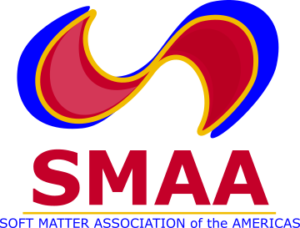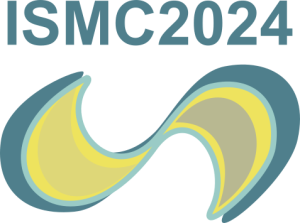
About the ISMC
About the ISMC
The History and Future of the ISMC
History and Future of the ISMC

ISMC - European Origins
1st ISMC, October 1-4, 2007, Aachen, Germany
Building on a charter of establishing an interdisciplinary series of events that connect theoretical, computational & experimental physics, physical chemistry, material science and biology, this first conference laid the groundwork by identifying, building and linking interests between disciplines concerning soft matter featuring topics in biomaterials, membranes, cell biophysics, colloids, glasses, gels, microfluidics, nanocomposites polymers, rheology, self-assembly, interfaces, and the dynamics of complex fluids.
The conference was organized by the SoftComp European Network of Excellence and the local Organizing Committee comprised of Gerhard Gompper, Jan K.G. Dhont, and Dieter Richter.
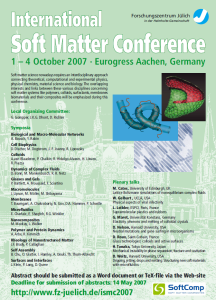
2nd ISMC July 5-8, 2010, Granada, Spain
Planned and organized by Prof. R. Hidalgo-Álvarez and the Biocolloid and Fluid Physics Group, the second event was supported by the Donostia International Physics Center, Forschungszentrum Jülich, and the University of Granada.
At ISMC 2010, Seth Fraden and Michael Rubinstein came up with the idea of organizing similar events in the United States.
A first step in this direction was taken by attempting to unify — over 2011-2013 — APS soft-matter-related-divisions and topical groups. The effort resulted in the formation of a large soft matter interest group at the 2012 APS March Meeting and the creation of the Topical Group on Soft Matter (GSOFT) in 2014.

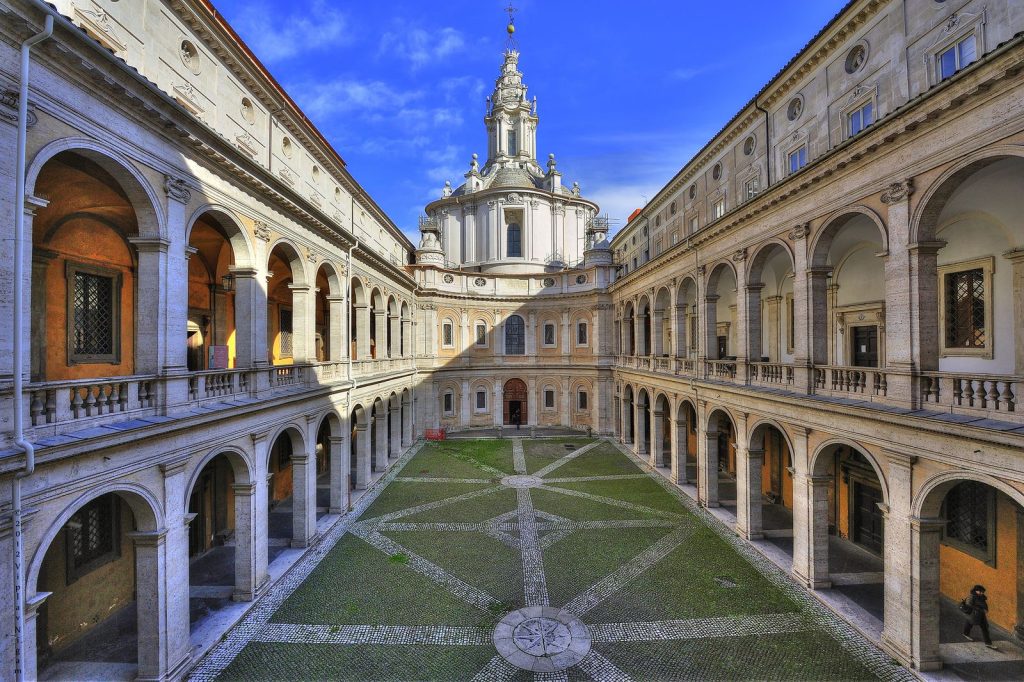
3rd ISMC, September 15-19, 2013, Rome, Italy
The event was organized at the Sapienza University of Rome and covered biological soft matter, colloids, dynamics of complex fluids, membranes, polymers, self-assembly, surfaces & interfaces, and soft nanotechnology.
In 2013-2014, there was an attempt to organize an ISMC in the United States with the help of ACS Colloids and The Surface Chemistry Division, but did not materialize. Again in 2015, an American ISMC was planned by the Royal Society of Chemistry to be held at Harvard University, but this effort also did not come to fruition.

4th ISMC, September 12-16, 2016, Grenoble, France
The event was organized by scientists from Grenoble University and other research organizations and facilities including ILL, ESRF, CEA, CNRS, and INPG. The coference included a Soft Matter symposium in which Professor Damien Baigl was presented with the 2016 Soft Matter Lectureship award.
In 2016, APS GSOFT explored organizing a conference in the United States, but once again, did not materialize.
In October of 2017, the 29th IUPAP General Assembly resolved to establish Working Group-15 : Soft Matter. Group 15 would carry with it a mandate of 5 key points.
To organize/assist in organization of an International Conference “Soft Matter Around the World” – which rotates every 3 years to each geographic region(Europe-Africa, the Americas, and Asia-Pacific).
To coordinate soft-matter-related regional, national & local conferences, meetings & workshops.
To coordinate soft matter education, such as summer/winter schools and short courses and help organizethem if a need appears.
To promote soft matter research through information exchange, publicity, prizes, publications, etc…
To strengthen the conncetions between academic and industrial soft matter research and development through outreach events, short courses, etc…
ISMC - Around the World in 3 Years
Circumnavigating the globe to bring soft matter discoveries to each continent.
The first non-European ISMC planned for summer 2020 at MIT was cancelled due to the pandemic.
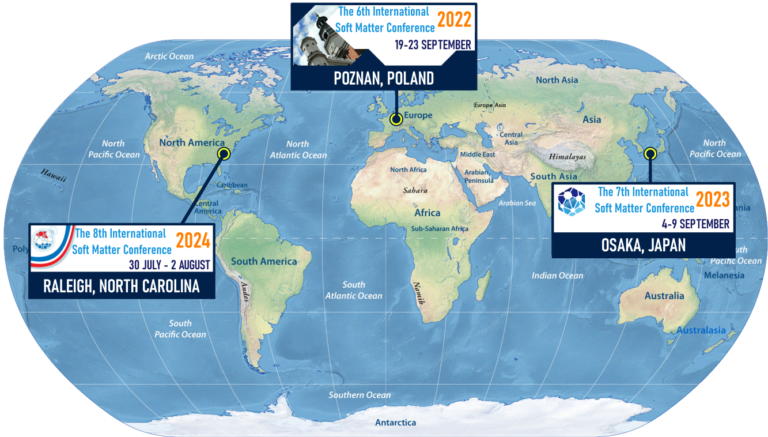
7th ISMC, September 4-8, 2023, Osaka, Japan
The 2023 event marked the first ISMC to be held outside of Europe. It was hosted by the Japanese Soft Matter Society and chaired by Ryoichi Yamamoto and Hajime Tanaka. It was the second event in the inaugural “Soft Matter Around the World in Three Years” cycle.
8th ISMC, July 29-August 2, Raleigh, North Carolina, USA
The event is organized by the Soft Matter Association of the Americas (SMAA) and chaired by Ronit Freeman, Michael Rubinstein and Jan Genzer. It completes the first cycle of the “Soft Matter Around the World in Three Years” coordinated by the IUPAP Working Group 15.
With this conference, the ISMC makes its debut in the Americas.
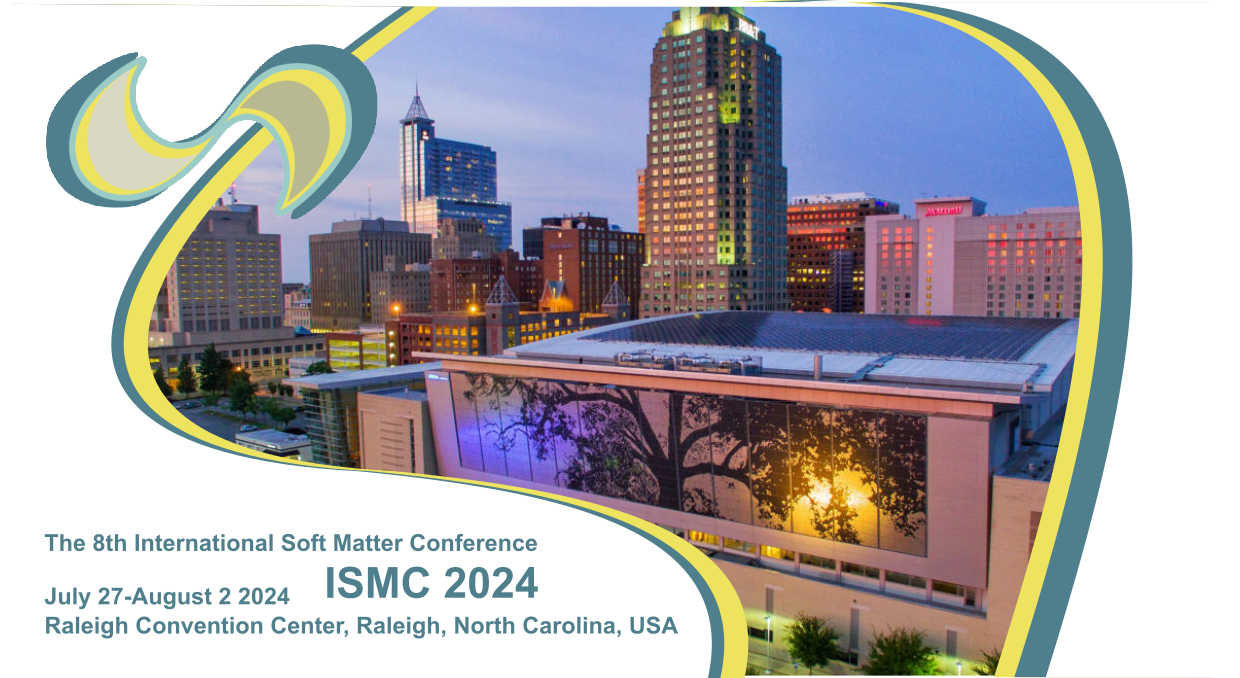
The 9th ISMC is planned to be held, 29 September – 3 October, 2025 at the Minoa Palace Resort, Chania, Crete, Greece
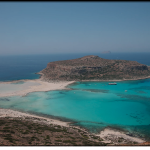
The 10th ISMC is planned to be held May 25-29, 2026 at the Burla Institute of Technology, Goa, India






